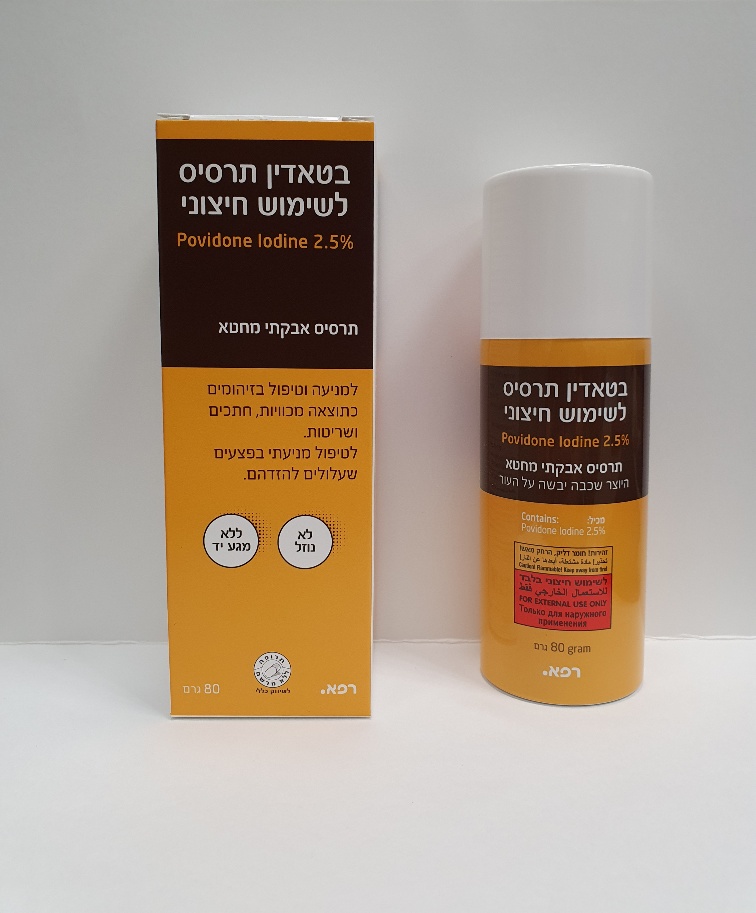Quest for the right Drug

בטאדין תרסיס לשימוש חיצוני BETADINE TOPICAL SPRAY (POVIDONE-IODINE)
תרופה במרשם
תרופה בסל
נרקוטיקה
ציטוטוקסיקה
צורת מתן:
עורי : DERMAL
צורת מינון:
אין פרטים : CUTANEOUS SPRAY, POWDER
עלון לרופא
מינוניםPosology התוויות
Indications תופעות לוואי
Adverse reactions התוויות נגד
Contraindications אינטראקציות
Interactions מינון יתר
Overdose הריון/הנקה
Pregnancy & Lactation אוכלוסיות מיוחדות
Special populations תכונות פרמקולוגיות
Pharmacological properties מידע רוקחי
Pharmaceutical particulars אזהרת שימוש
Special Warning עלון לרופא
Physicians Leaflet
Interactions : אינטראקציות
4.5. Interaction with Other Medicinal Products and Other Forms of Interaction Use of Betadine Topical Spray together with taurolidine should be avoided, as taurolidine may be converted to formic acid, which causes intensive burning. Preparations containing mercury should not be used concomitantly with povidone-iodine-containing medications because of the risk of formation of a potentially skin-damaging substance (see section 4.3). The povidone-iodine complex is effective at a pH between 2 and 7. It is to be expected that povidone-iodine will react with protein and various other unsaturated organic compounds, which may impair its efficacy. This may be compensated by a higher povidone-iodine dose. The concomitant use of wound treatments containing enzymatic components will result in a decrease of the effects of both substances. Preparations containing silver, hydrogen peroxide or taurolidine, or antiseptics may react with povidone- iodine and result in a mutual reduction of effects. Povidone-iodine products may cause temporary dark discolorations at the site of application before or after application of octenidine-containing products. Prolonged use, especially on extensive surfaces should be avoided in patients undergoing lithium therapy, as larger amounts of iodine may be absorbed. Effects on Diagnostic tests The iodine absorption from povidone-iodine products may reduce thyroid iodine absorption. This may result in disturbances in various tests (thyroid scintigraphy, determination of protein-bound iodine (PBI), radioiodine diagnostics), and make a planned radioiodine therapy impossible (see section 4.3). Because of the oxidizing effect of povidone-iodine, various diagnostics may yield false-positive results (e.g., toluidine and guaiac gum for hemoglobin and glucose determination in stool or urine).

שימוש לפי פנקס קופ''ח כללית 1994
לא צוין
תאריך הכללה מקורי בסל
לא צוין
הגבלות
לא צוין
מידע נוסף
